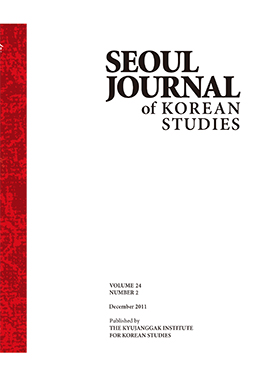Previous studies of the Goryeo political system argued that the ministers (high officials) dominated government affairs and were at the center of politics; it was also assumed that they represented the interests of noble houses. But such studies overlooked the role and power of the king. In this study, unlike previous ones, both the king and the subjects are examined with equal attention. As a result, it can be concluded that in Goryeo politics the king was at the center, and the running of state affairs was mostly based upon consultations between the king and the ministers or high officials. There were several systems that show these consultative processes. Before being issued, royal proclamations (jeseo 制書) underwent some deliberation at the Secretariat-Chancellery (Jungseo Munha-seong 中書門下省), and this process showed the consultations that went on between the king and the officials before the order was publicly issued. When a report was filed by an official, before making a decision and sending it to enforcement offices in order to implement the matter, the king requested implementation plans from the relevant offices. The fact that their opinion was usually reflected in the king’s final decision supports the view that this is also a consultative mechanism. Councils were convened to provide counsel to the king, who, while assisted by officials, was in ultimate charge of such discussions. In case of wrongdoings, the king was criticized by the remonstration officials (Dae-Gan 臺諫), who ensured the system continued to pursue consultation between the king and his officials. While Silla’s consultation system only covered a handful of True Bone aristocrats, Goryeo’s consultation system covered a much bigger group of subjects, which came to require a political system that would operate on the principle of consultation between the king and his officials. Eventually this type of politics based upon consultations became a specific characteristic of the Goryeo political system and its operations.




